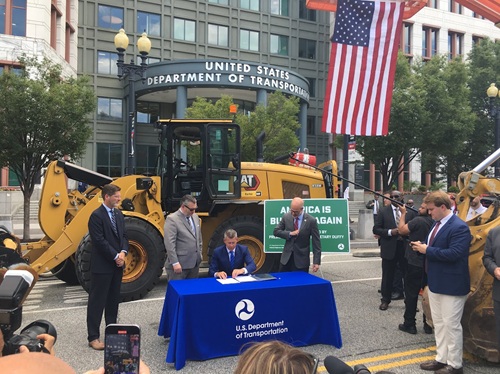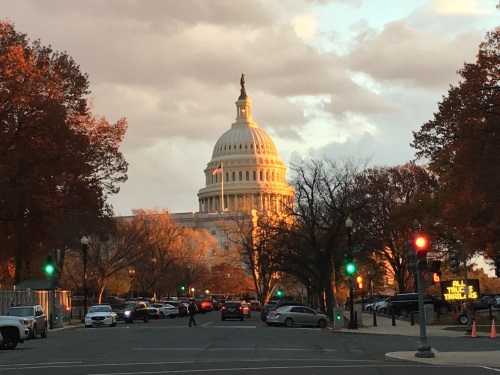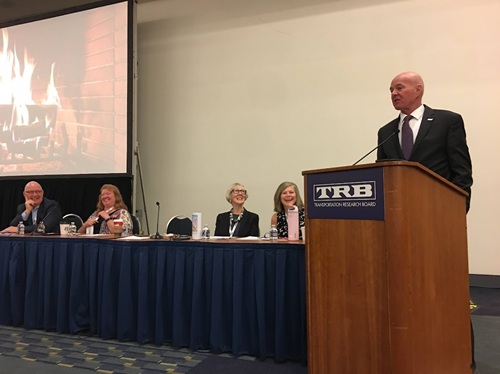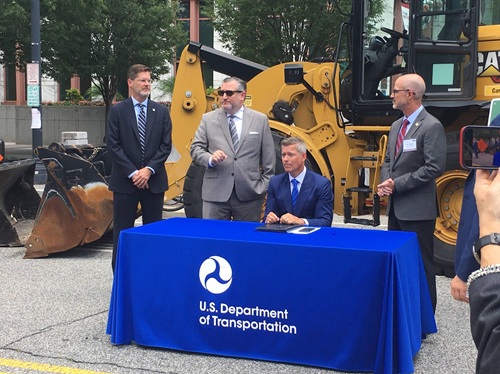Sean Duffy, secretary of the U.S. Department of Transportation, and Marc Williams, executive director of the Texas Department of Transportation, formally signed a Memorandum of Understanding or MOU on July 17 at USDOT’s headquarters in Washington, D.C., that allows Texas to take more ownership of environmental permitting requirements – cutting down on red tape so critical bridge and highway projects are started and completed faster.
[Above photo by AASHTO]
Duffy said that this MOU – originally outlined in June – will last 10 years and is expected to serve as a model for other states interested in taking on more responsibilities under the Federal Highway Administration’s National Environmental Policy Act or NEPA assignment program.

“We want other states to do what Texas is doing,” Duffy said at the event. “Our mission is to deliver transportation infrastructure for the American people – and we see states as critical partners in doing that.”
Under the NEPA assignment program, states are allowed to take full responsibility for environmental reviews; a program TxDOT has participated in since 2014.
In December 2023, TxDOT submitted its second renewal package and, after reviewing that package and TxDOT’s overall performance in the program, FHWA and TxDOT worked out several substantial changes in a new memorandum of understanding or MOU. Key changes include:
- Providing TxDOT with the ability to take on NEPA responsibilities for 10 years instead of five years;
- Removing references to rescinded regulations from the White House Council on Environmental Quality;
- Accelerating decision-making processes by utilizing TxDOT’s existing internal system to document the NEPA approval process that serves as FHWA notification of Texas’ NEPA decisions;
- Excluding FHWA from being a party to programmatic agreements; and,
- Removing reporting requirements related to performance measures, an annual self-assessment, and monthly reporting.
“This is all about speed, safety, and efficiency in project delivery,” Williams noted at the signing event. “Ultimately, this agreement saves time and money. In effect, it allows us to give the taxpayer more pavement instead of more paperwork.”
Sen. Ted Cruz (R-TX) added that this agreement will allow Texas to expand its transportation system to accommodate the rapid population growth it has experienced over the last 13 years – to north of 31 million people by 2024.
“Increased population means increased demand for transportation to get to work, to get to schools, etc.,” Sen. Cruz said. “You have to build that infrastructure. This agreement will help up us do that faster and better.”
 Top Stories
Top Stories
House Passes FY 2026 THUD Bill Within Minibus Package
January 23, 2026 Top Stories
Top Stories

